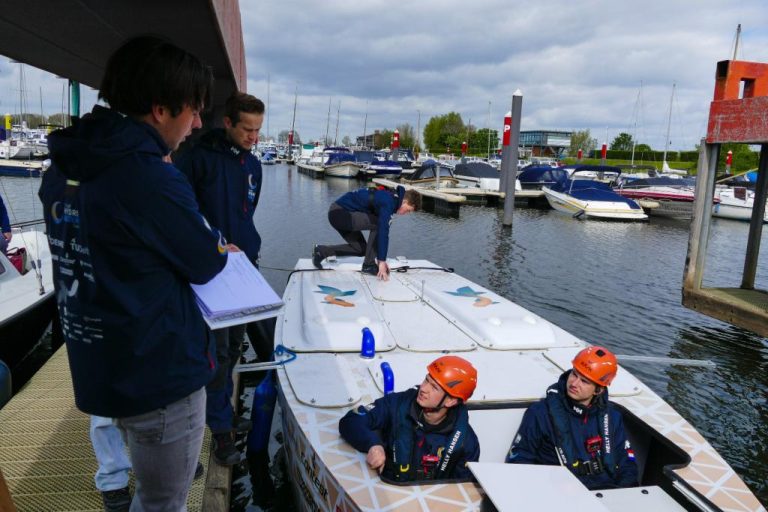Delft Hydro Motion Team to Monaco
The 23 students of the TU Delft Hydro Motion Team are heading to Monaco where they will participate in the Monaco Energy Boat Challenge between 5 and 8 July. They will be a bit of an oddity there as the only student team surrounded by companies from around the world.
 Team members discuss the trial run. (Photo: Hydro Motion Team)
Team members discuss the trial run. (Photo: Hydro Motion Team)
The team states they are ‘determined to demonstrate the benefits of their innovative technology and make a positive impact on the future of sustainable shipping’. The technology includes electric propulsion, active hydrofoils and hydrogen for the fuel cell.
At 25 kilometres per hour, the boat rises off the water and then rests on the submerged hydrofoils, reducing friction dramatically and allowing the boat to travel much faster. During the test runs, this did not yet succeed. Operations manager Mandy Vermeijs is hopeful that the automatic operation of the hydrofoils (two forward, one aft) will be brought under control in time. In Monaco, the boat will be assessed for speed, manoeuvrability and endurance. (JW)
Follow the team on Instagram.
Do you have a question or comment about this article?
j.w.wassink@tudelft.nl

Comments are closed.